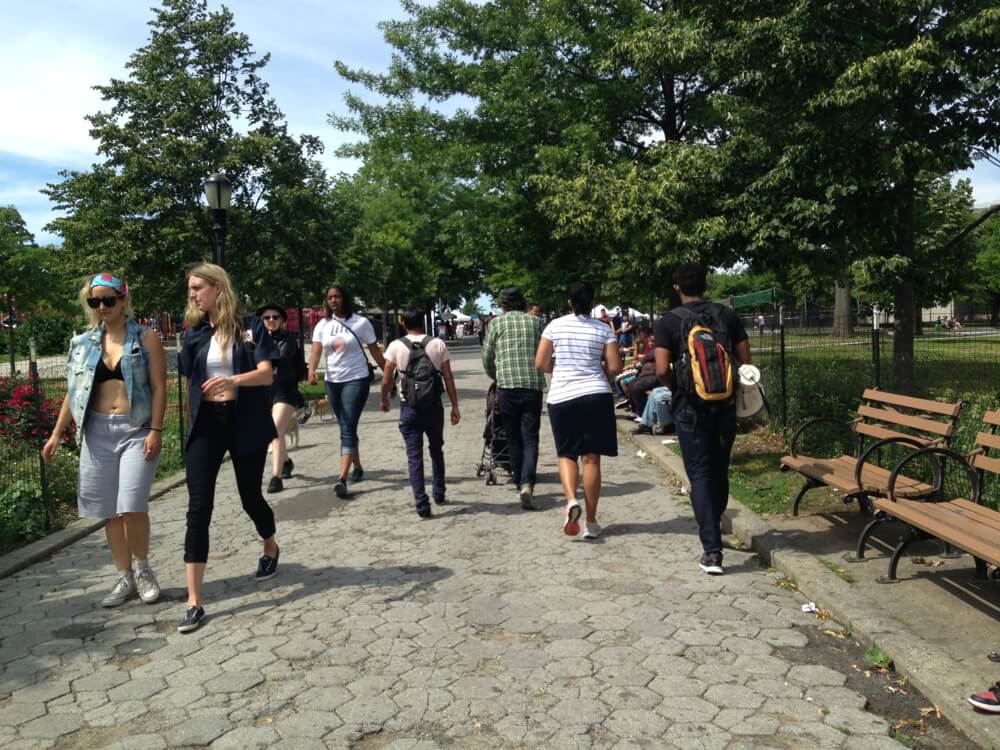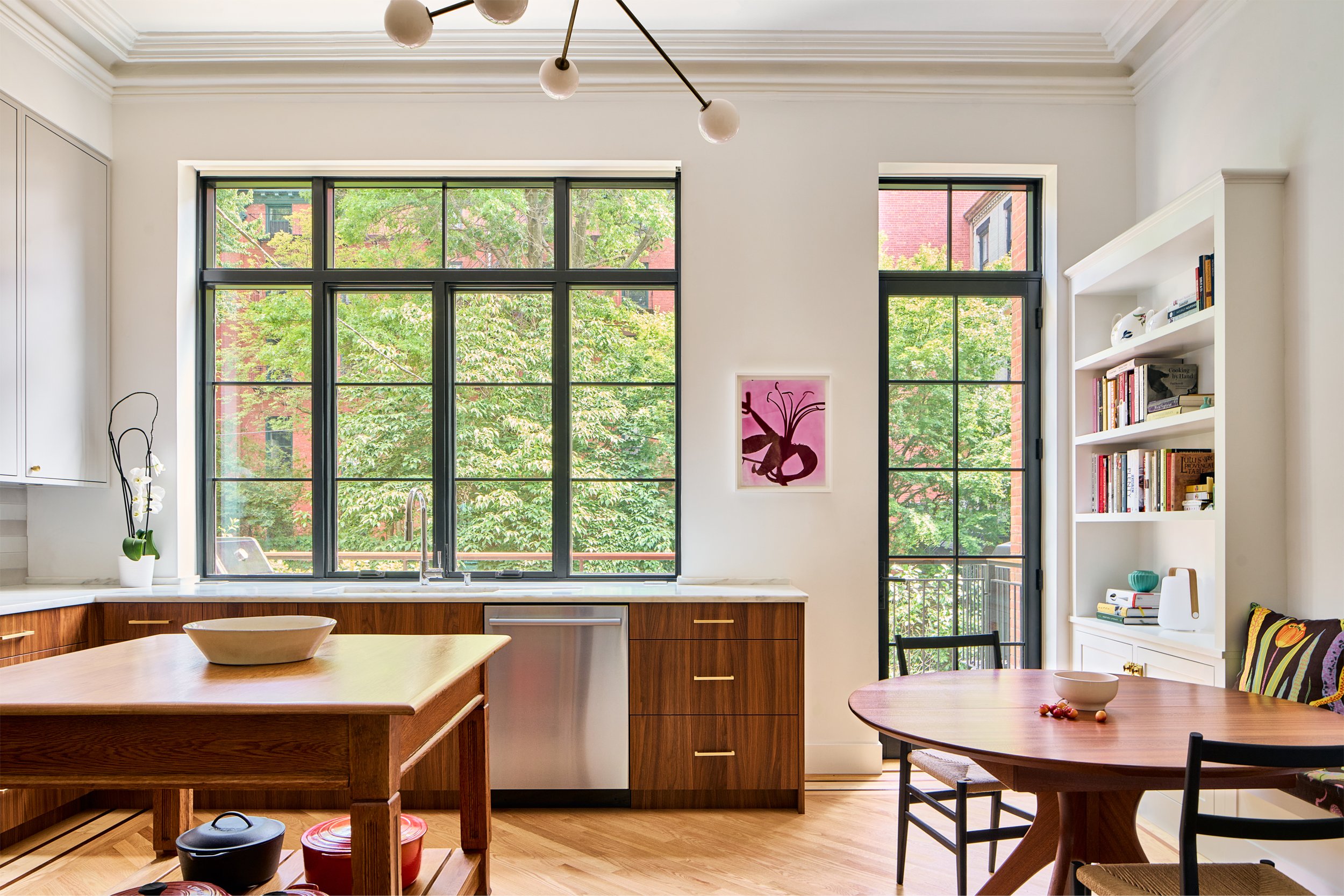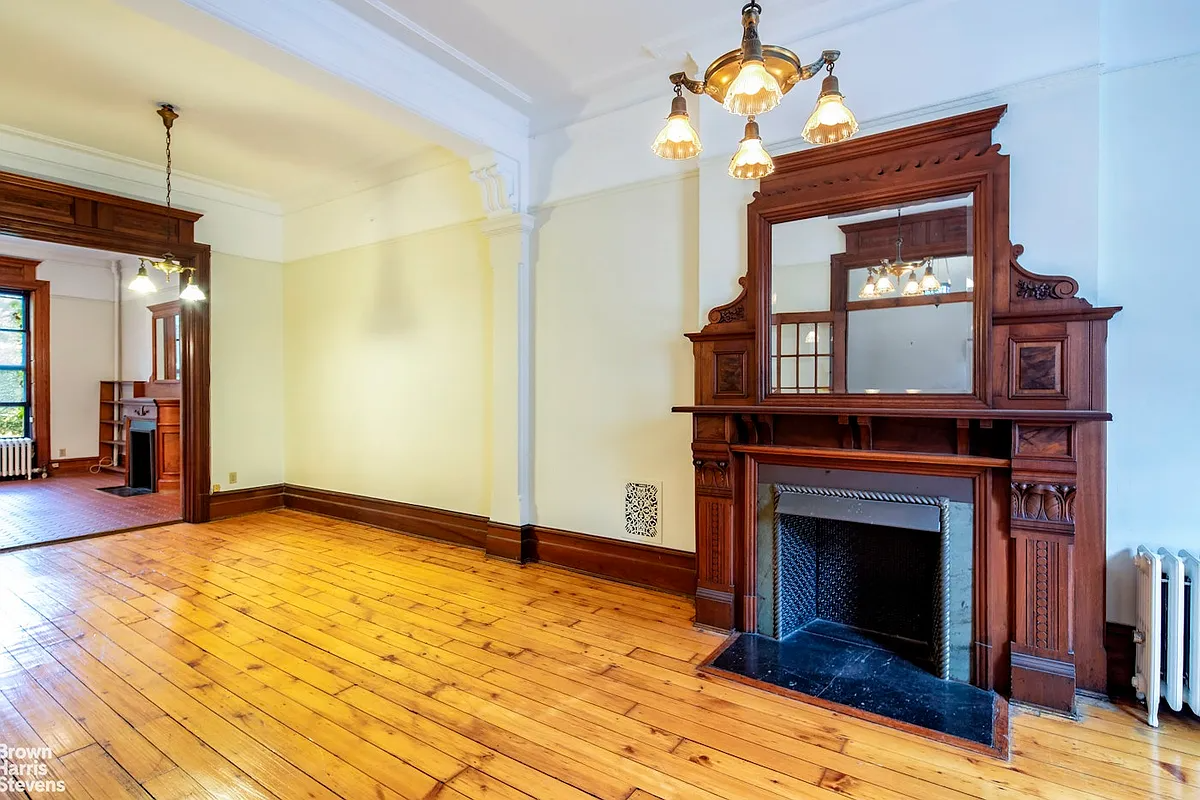Dozens Form Tenant Union to Fight Bushwick Landlord Accused of Racism
Tenants say the property owner has targeted Black and brown tenants for eviction, up-charged rent-stabilized apartments, and left the buildings in squalor.

Protesters march in Downtown Brooklyn on August 6 calling on Governor Cuomo to cancel rent. Photo by Paul Frangipane
Dozens of Bushwick tenants are unionizing against their shared landlord — claiming the property owner has targeted Black and brown tenants for eviction, up-charged rent-stabilized apartments, and left the buildings in squalor.
“He’s really ruthless to tenants of color, non-English speaking people, and immigrants,” said Travis, a white tenant who formed the tenants union in April, and did not give his last name. “He does what he can to get them out of his buildings.”
Renters say that Bushwick landlord Deodat Lowtan — who was named the 19th worst landlord in the city by Public Advocate Jumaane Williams’ 2019 landlords watchlist — has gone after tenants of color for not paying rent during the coronavirus pandemic, while letting white tenants off the hook.
They say the threats follow years of harassment directed towards mostly non-English speaking and Black tenants at Lowtan’s 39 buildings, which are located mostly around Maria Hernandez Park.
One transgender woman said she was one of two Black tenants who first received eviction notices for unpaid rent in late July.
“It’s a 14-day eviction notice that says to either give up the premises or pay,” said Aasia Taylor-Patterson, who was fired from her job in January, and was never able to start her new job in March because of the coronavirus outbreak.

Taylor-Patterson, who does not qualify for unemployment payments or Pandemic Unemployment Assistance, said that her roommates paid their rent through April, but moved out and stopped paying rent afterwards — and, while Lowtan forgave many tenants who stopped their paying rent, the landlord did not give Taylor-Patterson the same leeway, she said.
“Until I woke up this morning, it had only been Black tenants that received the [eviction] notice,” she said on July 31.
The other Black tenant to receive an eviction notice, Hero Vincent, said that Lowtan has repeatedly threatened to evict him since the start of the pandemic.
“He’s threatened me a couple times, he sent me a letter for eviction. He sent me a letter for eviction the first month, like in May,” said Vincent. “I heard he told [a white tenant], ‘Don’t worry about rent. Let’s figure something out, I’ll get you a new door.’ For me, that was not the conversation we had. It was more, ‘Why, the f–k are you in my house. Get out.’”
While eviction proceedings are on hold until at least October, landlords can still notify tenants of their intention to file for eviction due to accumulation of missed rent.
Yet, contrary to Taylor-Patterson and Vincent’s experience, one white tenant said the southeast Asian landlord had simply been understanding towards his inability to pay rent since April.
“He told me not to worry about it,” said Clint Greenlee. “It’s just a completely different demeanor.”
After hearing about Lowtan’s harassment, Travis founded the Broadway Starr Tenants Union and began working with other renters to compile a dossier of grievances against Lowtan. Since then, Travis has received an eviction notice.
Their unionization effort comes amid calls from tenant activists to implement some form of rent relief to prevent a wave of evictions from struggling renters who have lost jobs due to the pandemic.
Many of the complaints from the Bushwick union involved unkempt quarters, pest infestation, and broken appliances. One renter claimed that her building on Hart Street and Knickerbocker Avenue was essentially a construction site three years ago when she and her roommates moved in, with no running water and power tools scattered around.
“He just sort of arbitrarily decides what the rules are,” said the tenant, who spoke on the condition of anonymity for fear of reprisal.
She and her roommates sent Lowtan, who allegedly tells his tenants his name is Rupert, an angry letter after their heat repeatedly went off one winter, but Lowtan belittled her demands, she said.
“The next day we come home and he said, ‘Hey missy, you can’t do that stuff … you can’t send me letters like that, know your place,’” said the tenant, who is Black and Native American. “My ex-roommates and I definitely felt that this guy is a misogynist.”
Taylor-Patterson, who lives on Wyckoff Avenue by Willoughby Avenue, claimed Lowtan called her a “roach” after she repeatedly complained of a cockroach infestation.
“I’ve faced verbal racial violence from him. I asked a handyman to come over and do repairs. [Lowtan] called me a roach five times, and I was specifically trying to get an exterminator to come,” she said, adding that she regularly hears rats under the floorboards.
An online database shows that in addition to having racked up more than 3,000 housing violations total, Lowtan has destabilized 98 rent-stabilized units since 2007, more than 40-percent of his total — which occurs when tenants vacate their price-controlled units.
Many of the tenants Lotwan allegedly forced out were Latino immigrants who don’t speak English, according to a local organizer.
“He only takes cash from the Latino tenants, as opposed to the white tenants who give him checks. And then he doesn’t give them a receipt,” said Millie Sandoval, who’s worked with tenants in Lowtan’s buildings for more two years at Community Resist, a legal services organization that’s funded by the Human Resources Administration’s office of civil justice.
The cash payments allow Lowtan to claim tenants never paid rent and take them to housing court, said Sandoval, who added that Lowtan hikes up rent indiscriminately.
“Every month he wants more,” she said, saying that the Lowtan would sometimes increase the rent by $200 while collecting it every month. “These are rent-stabilized units. These people have no idea they live in rent stabilized buildings.”
Sandoval said that her Latino clients describe very different experiences with Lowtan than the white tenants she’s spoken to.
“He has said [to Latino tenants], ‘If you don’t like it, go back to your country,’” she said. “It’s a pattern with him, the Latinos and blacks. He targets them.”
Travis and the members of the tenants union hope that by compiling a dossier, they can spread the word about Lowtan’s practices.
“We will be doing what we can to hold him accountable to what he’s been doing to us and our neighbors,” Travis said.
Lowtan did not respond to multiple requests for comment.
Editor’s note: A version of this story originally ran in Brooklyn Paper. Click here to see the original story.
Related Stories
- Crown Heights Tenants Say Prominent Brooklyn Couple Tried to Illegally Evict Them
- Big NYC Landlord Proposes ‘Payment Plans’ to Solve Looming Rent, Tax Crisis
- Legal Aid: What Homeowners Need to Know About Mortgages and Foreclosure During COVID-19 Crisis
Sign up for amNY’s COVID-19 newsletter to stay up to date on the latest coronavirus news throughout New York City. Email tips@brownstoner.com with further comments, questions or tips. Follow Brownstoner on Twitter and Instagram, and like us on Facebook.





What's Your Take? Leave a Comment